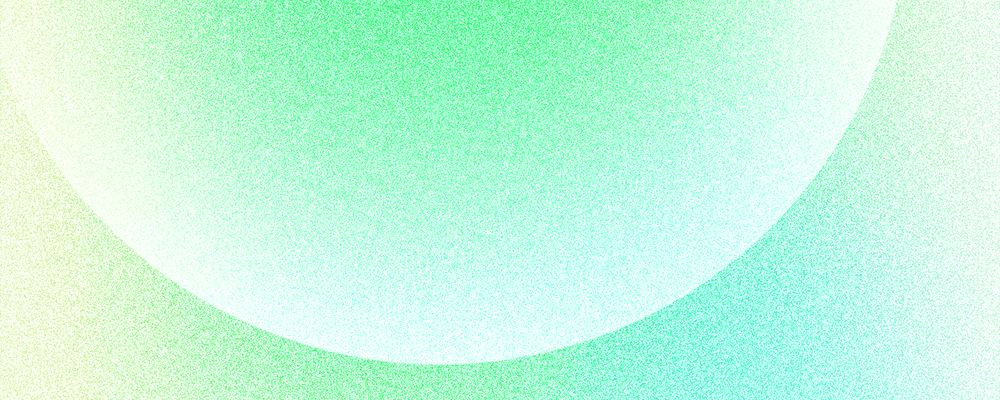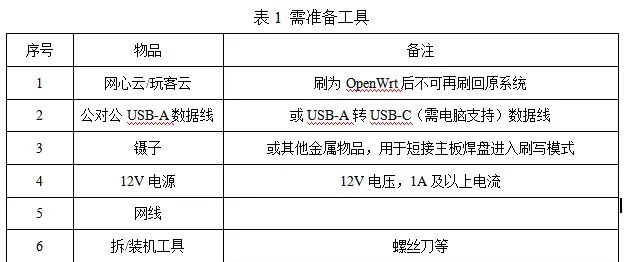苏格拉底(Socrates)
- The only true wisdom is in knowing you know nothing.
真正的智慧在于知道自己一无所知。3 - The unexamined life is not worth living.
未经审视的生活不值得过。 - Wonder is the beginning of wisdom.
好奇是智慧的开端。 - I cannot teach anybody anything. I can only make them think.
我无法教会任何人任何事,我只能让他们思考。 - By all means marry; if you get a good wife, you’ll become happy; if you get a bad one, you’ll become a philosopher.
必定要结婚;娶到好妻子,你会幸福;娶到坏妻子,你会成为哲学家。 - Strong minds discuss ideas, average minds discuss events, weak minds discuss people.
强者讨论思想,常人讨论事件,弱者讨论他人。 - Education is the kindling of a flame, not the filling of a vessel.
教育是点燃火焰,而非填满容器。 - He who is not contented with what he has, would not be contented with what he would like to have.
不满足于现有之人,也不会满足于所求之物。 - Know thyself.
认识你自己。 - Death may be the greatest of all human blessings.
死亡或许是人类最大的福祉。 - Let him who would move the world first move himself.
欲动世界者,先动自身。 - Every action has its pleasures and its price.
每个行为都有其快乐与代价。 - The way to gain a good reputation is to endeavor to be what you desire to appear.
获得美誉之道,在于努力成为你想展现的样子。 - Contentment is natural wealth, luxury is artificial poverty.
知足是自然的财富,奢侈是人为的贫穷。 - Do not do to others what angers you if done to you by others.
己所不欲,勿施于人。 - When the debate is lost, slander becomes the tool of the loser.
辩论失败时,诽谤成为输家的工具。 - I am not an Athenian nor a Greek, but a citizen of the world.
我不是雅典人或希腊人,而是世界公民。 - Prefer knowledge to wealth, for the one is transitory, the other perpetual.
宁要知识而非财富,因其一是短暂的,另一是永恒的。 - Employ your time in improving yourself by other men's writings so that you shall come easily by what others have labored hard for.
用他人的著作来提升自己,你将轻松获得他人辛勤所得。 - We cannot live better than in seeking to become better.
追求更好的过程,就是最好的生活。
柏拉图(Plato)
- Love is a serious mental disease.
爱情是一种严重的精神疾病。1 - The greatest wealth is to live content with little.
最大的财富是知足常乐。 - Wise men speak because they have something to say; fools because they have to say something.
智者说话由于有话要说,愚者说话由于不得不说。 - Opinion is the medium between knowledge and ignorance.
意见是知识与无知之间的媒介。 - Courage is knowing what not to fear.
勇气是知道不必害怕什么。 - The soul is dyed the color of its thoughts.
灵魂被思想的颜色所浸染。 - He was a wise man who invented beer.
发明啤酒的人是智者。 - Knowledge which is acquired under compulsion obtains no hold on the mind.
被迫获得的知识无法扎根于心。 - Music gives a soul to the universe, wings to the mind, flight to the imagination, and life to everything.
音乐赋予宇宙灵魂,赋予心灵翅膀,赋予想象飞翔,赋予万物生命。 - The first and greatest victory is to conquer yourself; to be conquered by yourself is of all things most shameful and vile.
首要且最大的胜利是征服自己;被自己征服是最可耻与卑劣的事。 - Good people do not need laws to tell them to act responsibly, while bad people will find a way around the laws.
好人无需法律约束其行为,坏人总能找到法律漏洞。 - The measure of a man is what he does with power.
衡量一个人的标准是他如何运用权力。 - One of the penalties for refusing to participate in politics is that you end up being governed by your inferiors.
拒绝参与政治的代价之一,是被不如你的人统治。 - Ignorance, the root and stem of all evil.
无知是一切罪恶的根源。 - The price good men pay for indifference to public affairs is to be ruled by evil men.
好人对公共事务冷漠的代价,是被恶人统治。 - The ideal man bears the accidents of life with dignity and grace, making the best of circumstances.
理想之人以尊严与优雅承受生活的变故,善用境遇。 - The direction in which education starts a man will determine his future life.
教育的起点决定一个人的未来人生。 - All men are by nature equal, made all of the same earth by one Workman; and however we deceive ourselves, as dear unto God is the poor peasant as the mighty prince.
人人生而平等,由同一造物主用泥土造就;无论我们如何自欺,上帝眼中贫农与权贵同样珍贵。 - The beginning is the most important part of the work.
开端是工作最重大的部分。 - To find yourself, think for yourself.
要找到自己,先独立思考。
亚里士多德(Aristotle)
- It is the mark of an educated mind to be able to entertain a thought without accepting it.
受过教育的标志是能接纳一个想法而不接受它。6 - Happiness is the meaning and the purpose of life, the whole aim and end of human existence.
幸福是生命的意义与目的,是人类存在的全部目标。9 - We are what we repeatedly do. Excellence, then, is not an act, but a habit.
我们是反复行为的产物。卓越不是一种行为,而是一种习惯。 - The energy of the mind is the essence of life.
心灵的能量是生命的本质。 - What is a friend? A single soul dwelling in two bodies.
朋友是什么?两个身体里住着同一个灵魂。 - Pleasure in the job puts perfection in the work.
工作中的乐趣带来完美的成果。 - To perceive is to suffer.
感知即受苦。 - The worst form of inequality is to try to make unequal things equal.
最恶劣的不平等是尝试使不平等的事物平等。 - The whole is greater than the sum of its parts.
整体大于部分之和。 - Man is by nature a political animal.
人天生是政治动物。 - Education is an ornament in prosperity and a refuge in adversity.
教育是顺境中的装饰,逆境中的避难所。 - The roots of education are bitter, but the fruit is sweet.
教育的根是苦的,但其果实是甜的。 - The greatest virtues are those which are most useful to other persons.
最伟大的美德是对他人最有用的美德。 - It is not always the same thing to be a good man and a good citizen.
做一个好人与做一个好公民并非总是一回事。 - The aim of art is to represent not the outward appearance of things, but their inward significance.
艺术的目的不是表现事物的外在表象,而是其内在意义。 - To live a single day as a lion is better than to live a thousand years as a sheep.
做一日雄狮胜过做千年绵羊。 - The best friend is the man who in wishing me well wishes it for my sake.
最好的朋友是真心为我着想的人。 - Hope is a waking dream.
希望是清醒的梦。 - No excellent soul is exempt from a mixture of madness.
卓越的灵魂无不混杂着疯狂。 - Whosoever is delighted in solitude is either a wild beast or a god.
喜爱孤独者,若非野兽,便是神灵。
笛卡尔(René Descartes)
- Cogito, ergo sum.
我思故我在。 - The greatest minds are capable of the greatest vices as well as of the greatest virtues.
最伟大的头脑既能成就最伟大的美德,也能犯下最严重的恶行。 - Except our own thoughts, there is nothing absolutely in our power.
除了我们自己的思想,没有什么是完全受我们控制的。17 - Conquer yourself rather than the world.
征服自己,而非征服世界。 - Doubt is the origin of wisdom.
怀疑是智慧的源泉。 - To know that we know what we know, and that we do not know what we do not know, that is true knowledge.
知道我们知道自己所知,知道我们不知道自己所不知,这才是真正的知识。 - The reading of all good books is like a conversation with the finest minds of past centuries.
阅读所有好书,如同与过去世纪最优秀的人对话。 - It is not enough to have a good mind; the main thing is to use it well.
拥有好头脑还不够,关键是要善用它。 - The first rule was to accept nothing as true which I did not clearly recognize to be so.
第一条规则是,除非清楚认识到为真,否则不接受任何事物为真。 - The only thing that interferes with my learning is my education.
唯一妨碍我学习的是我的教育。 - Each problem that I solved became a rule which served afterwards to solve other problems.
我解决的每个问题都成为后来解决其他问题的规则。 - The senses deceive from time to time, and it is prudent never to trust wholly those who have deceived us even once.
感官时而欺骗我们,明智的做法是永远不要完全信任那些欺骗过我们一次的事物。 - I have never set any limits to my desires, other than those which are placed by the laws of nature and by the possibility of their fulfillment.
除了自然法则和实现可能性所设定的限制,我从未给自己的欲望设限。 - The will is infinite, but the intellect is finite.
意志是无限的,但理智是有限的。 - The greatest wisdom is to get things done with the least possible trouble.
最大的智慧是以最少的麻烦完成事情。 - It is not knowledge, but the act of learning, not possession but the act of getting there, which grants the greatest enjoyment.
给予最大快乐的不是知识,而是学习的过程;不是拥有,而是达成目标的过程。 - In order to improve the mind, we ought less to learn, than to contemplate.
为了提升心智,我们应当少学习,多沉思。 - The smallest minds are the most arrogant.
最渺小的头脑最傲慢。 - The passions of the soul are the perceptions, sensations, or emotions of the soul that we refer particularly to it, and which are caused, maintained, and strengthened by some movement of the spirits.
灵魂的激情是灵魂的感知、感觉或情感,我们特别将其归于灵魂,由精神的某种运动所引起、维持和强化。 - The chief cause of human errors is to be found in the prejudices picked up in childhood.
人类错误的主要缘由在于童年时期形成的偏见。
洛克(John Locke)
- The state of nature has a law of nature to govern it, which obliges every one: and reason, which is that law, teaches all mankind, who will but consult it, that being all equal and independent, no one ought to harm another in his life, health, liberty, or possessions.
自然状态受自然法支配,约束每个人;理性即该法则,教导所有愿意遵循的人:人人生而平等独立,无人应伤害他人的生命、健康、自由或财产。11 - What worries you, masters you.
忧心生时,你即受其所役。 - No man's knowledge here can go beyond his experience.
人的知识无法超越其经验。 - The improvement of understanding is for two ends: first, our own increase of knowledge; secondly, to enable us to deliver that knowledge to others.
提升理解力有两个目的:一是增加自身知识,二是能够将知识传授给他人。 - Education begins the gentleman, but reading, good company and reflection must finish him.
教育造就绅士,但阅读、良伴与反思才能完善他。 - Parents wonder why the streams are bitter, when they themselves have poisoned the fountain.
父母惊讶溪流为何苦涩,却不知是自己污染了源头。 - The necessity of pursuing true happiness is the foundation of all liberty.
追求真正幸福的必要性是一切自由的基础。 - Every man has a property in his own person. This nobody has any right to but himself.
每个人对自己的人身享有所有权,除自己外无人有权干涉。 - The reason why men enter into society is the preservation of their property.
人们进入社会的缘由是保护自己的财产。 - Government has no other end, but the preservation of property.
政府的唯一目的是保护财产。 - Where there is no law, there is no freedom.
没有法律的地方,就没有自由。 - The end of law is not to abolish or restrain, but to preserve and enlarge freedom.
法律的目的不是废除或限制自由,而是保护和扩大自由。 - The legitimate power of government is to protect people's rights, not to control their lives.
政府的合法权力是保护人民的权利,而非控制他们的生活。 - Labor is the foundation of all property.
劳动是一切财产的基础。 - The true beginning of knowledge is to know that we are ignorant.
真正的知识始于认识到自己的无知。 - The freedom of man in society is to be under no other legislative power but that established by consent in the commonwealth.
社会中的人的自由是只受共同体同意设立的立法权约束。 - The great art of education is to know how to guide and manage the mind.
教育的伟大艺术在于知道如何引导和管理心智。 - Reading furnishes the mind only with materials of knowledge; it is thinking that makes what we read ours.
阅读仅为心灵提供知识材料,思考才能将所读化为己有。 - The actions of men are the best interpreters of their thoughts.
人的行为是其思想的最佳诠释者。 - It is one thing to show a man that he is in an error, and another to put him in possession of truth.
指出一个人犯错是一回事,让他掌握真理是另一回事。
霍布斯(Thomas Hobbes)
- The condition of man… is a condition of war of everyone against everyone.
人的状态…… 是每个人对每个人的战争状态。13 - No arts; no letters; no society; and which is worst of all, continual fear, and danger of violent death; and the life of man, solitary, poor, nasty, brutish, and short.
没有艺术,没有文字,没有社会;最糟糕的是持续的恐惧和暴力死亡的危险;人的生活孤独、贫困、卑污、残忍且短暂。 - The right of nature… is the liberty each man hath to use his own power, as he will himself, for the preservation of his own nature; that is to say, of his own life.
自然权利…… 是每个人运用自身力量以保全自身天性(即生命)的自由。 - A covenant not to defend myself from force, by force, is always void.
约定不以武力自卫的契约永远无效。 - Covenants without the sword are but words, and of no strength to secure a man at all.
没有武力保障的契约只是空谈,无力保护任何人。 - The desire of power in excess caused the angels to fall; the desire of knowledge in excess caused man to fall.
过度的权力欲导致天使堕落,过度的求知欲导致人类堕落。 - Curiosity is the lust of the mind.
好奇心是心灵的欲望。 - The secret thoughts of a man run over all things, holy, profane, clean, obscene, grave, and light, without shame or blame.
人的隐秘思想会掠过一切事物,神圣与世俗、洁净与淫秽、严肃与轻浮,毫无羞耻或责备。 - Words are the counters of wise men, and the money of fools.
言语是智者的筹码,愚者的金钱。 - In the state of nature, profit is the measure of right.
在自然状态下,利益是权利的衡量标准。 - Law was brought into the world for nothing else but to limit the natural liberty of particular men in such manner as they might not hurt, but assist one another, and join together against a common enemy.
法律的诞生是为了限制个人的自然自由,使其不相互伤害,而是相互协助,共同对抗共同敌人。 - The sovereign is the soul of the commonwealth.
主权者是国家的灵魂。 - The obligation of subjects to the sovereign is understood to last as long, and no longer, than the power lasteth by which he is able to protect them.
臣民对主权者的义务持续到其保护能力终止之时。 - No man is a good physician who has never been sick.
从未生病的人不是好医生。 - The world is my prison.
世界是我的监狱。 - A man's conscience and his judgment is the same thing; and as the judgment, so also the conscience, may be erroneous.
人的良心与判断是同一回事;判断可能错误,良心也可能错误。 - To have a right to do a thing is not at all the same as to be right in doing it.
有权做某事与做某事正确完全不同。 - The cause of war is not so much anger as fear.
战争的缘由更多是恐惧而非愤怒。 - The most frequent of all follies is to believe passionately in the palpably not true.
最常见的愚蠢是狂热信任明显不真实的事物。 - Hell is truth seen too late.
地狱是真相被发现得太晚。
卢梭(Jean-Jacques Rousseau)
- Man is born free, and everywhere he is in chains.
人人生而自由,却无处不在枷锁之中。 - The world of reality has its limits; the world of imagination is boundless.
现实世界有其界限,想象世界则是无限的。 - The first man who, having enclosed a piece of land, bethought himself of saying 'This is mine,' and found people simple enough to believe him, was the real founder of civil society.
第一个圈起一块土地并宣称 “这是我的”,且找到足够单纯的人信任他的人,是文明社会的真正奠基人。 - What wisdom can you find that is greater than kindness?
有什么智慧能比善良更伟大? - The strongest is never strong enough to be always the master, unless he transforms strength into right, and obedience into duty.
最强者永远无法强劲到永远为所欲为,除非他将力量转化为权利,将服从转化为义务。 - People who know little are usually great talkers, while men who know much say little.
知之甚少者一般夸夸其谈,学识渊博者往往沉默寡言。 - The person who has lived the most is not the one with the most years, but the one with the richest experiences.
活得最充实的人不是寿命最长的人,而是经历最丰富的人。 - To be idle is a short road to death and to be diligent is a way of life; foolish people are idle, wise people are diligent.
懒惰是通向死亡的捷径,勤奋是生活之道;愚人懒惰,智者勤奋。 - Patience is bitter, but its fruit is sweet.
耐心是苦涩的,但其果实是甜蜜的。 - The best way to make children good is to make them happy.
让孩子变好的最佳方式是让他们快乐。 - The man who can dominate his passions is more of a man than he who can take a city.
能控制自己激情的人,比能征服一座城市的人更有男子气概。 - The world of reality has its limits; the world of imagination is boundless.
现实世界有其界限,想象世界则是无限的。 - The first and most sacred of all duties is to the truth.
首要且最神圣的职责是追求真理。 - I prefer liberty with danger than peace with slavery.
我宁愿危险中的自由,也不要奴役中的和平。 - The more I know men, the more I like dogs.
我越了解人,就越喜爱狗。 - The child who is not embraced by the village will burn it down to feel its warmth.
未被村庄拥抱的孩子会烧毁它以感受温暖。 - The problem is not that we have too many opinions, but too few facts.
问题不在于我们有太多意见,而在于太少实际。 - The person who does not know how to be alone will never be free.
不懂独处的人永远不会自由。 - The most dangerous moment comes with victory.
最危险的时刻伴随胜利而来。 - To live is not merely to breathe; it is to act; it is to make use of our organs, senses, faculties – of all those parts of ourselves which give us the feeling of existence.
活着不只是呼吸,而是行动;是运用我们的器官、感官、能力 —— 所有让我们感受到存在的部分。
休谟(David Hume)
- Reason is, and ought only to be the slave of the passions.
理性是且应当只是激情的奴隶。20 - Beauty in things exists in the mind which contemplates them.
事物的美存在于审视它们的心灵中。 - Custom is the great guide of human life.
习惯是人生的伟大指南。 - A wise man proportions his belief to the evidence.
智者根据证据调整自己的信念。 - The difference between a wise man and a fool is that the former only feels the uneasiness of his present state, while the latter feels it in all its force.
智者与愚者的区别在于,前者只感受到当前状态的不安,后者则感受到其全部力量。 - All the sciences have a relation, greater or less, to human nature.
所有科学都与人性有或大或小的关联。 - It is not contrary to reason to prefer the destruction of the whole world to the scratching of my finger.
宁愿毁灭全世界也不愿划伤手指,这并不违背理性。 - The rules of morality are not the conclusions of our reason.
道德规则并非我们理性的结论。 - The mind is a kind of theatre, where several perceptions successively make their appearance; pass, re-pass, glide away, and mingle in an infinite variety of postures and situations.
心灵是一座剧院,各种知觉相继登场,经过、再经过、滑走,以无限多样的姿态和情境交融。 - We are never reasoning from the passion, but always reasoning about the passion.
我们从不从激情出发推理,而是总是对激情进行推理。 - The only way to free ourselves from the grip of superstition is through the light of reason and philosophy.
摆脱迷信束缚的唯一途径是通过理性与哲学之光。 - The more you read, the more you know; the more you know, the more you realize how much you don't know.
你读得越多,知道得越多;知道得越多,越意识到自己不知道的越多。 - Human nature is the only science of man; and yet has been hitherto the most neglected.
人性是人类唯一的科学,却至今最被忽视。 - The great end of all human industry is the attainment of happiness.
人类一切努力的伟大目标是获得幸福。 - The happiness of life is made up of minute fractions – the little, soon forgotten charities of a kiss or a smile, a kind look or heartfelt compliment.
生活的幸福由微小片段构成 —— 一个吻或微笑、一个善意的眼神或衷心的赞美,这些很快被遗忘的善意。 - The best way to correct a natural propensity is to give it free scope, but with a certain degree of regularity.
纠正自然倾向的最佳方式是给予其自由空间,但保持必定规律性。 - The power of fortune is confessed only by the miserable, for the happy impute all their success to prudence or merit.
命运的力量只有不幸者才会承认,由于幸福者将其成功归因于审慎或美德。 - The most durable as well as the most reasonable principles of action, or conduct, are to be found in the ordinary commerce of the world.
最持久且最合理的行动或行为原则,存在于日常的世俗交往中。 - The true charm of marriage is the mutual care and comfort of two people who are one in heart and mind.
婚姻的真正魅力在于两人心灵相通的相互关怀与慰藉。 - The world is so constructed that if you wish to enjoy its pleasures, you must also endure its pains.
世界如此构造,若你想享受其快乐,就必须忍受其痛苦。
康德(Immanuel Kant)
- Two things fill the mind with ever new and increasing admiration and awe, the more often and steadily we reflect upon them: the starry heavens above me and the moral law within me.
有两样东西永远充满新奇与敬畏,越是反复思考,越是如此:头顶的星空与心中的道德律。 - Act only according to that maxim whereby you can at the same time will that it should become a universal law.
只依据你同时愿意其成为普遍法则的准则行动。 - Freedom is not the absence of constraints, but the ability to choose what is right.
自由不是没有约束,而是选择正确的能力。 - Morality is not the doctrine of how we may make ourselves happy, but how we may make ourselves worthy of happiness.
道德不是如何让自己幸福的学说,而是如何让自己配得上幸福的学说。 - The greatest human endeavor is to strive for the moral perfection of oneself and others.
人类最大的努力是追求自身与他人的道德完善。 - The human being is the only creature that has the ability to set goals for itself.
人类是唯一能为自己设定目标的生物。 - The mind is not a vessel to be filled, but a fire to be kindled.
心灵不是待填满的容器,而是待点燃的火焰。 - The more a man knows, the more he realizes how much he doesn't know.
一个人知道得越多,越意识到自己不知道的越多。 - The highest principle of all practical reasoning is the categorical imperative.
所有实践推理的最高原则是绝对命令。 - The concept of freedom is the key to explaining the autonomy of the will.
自由概念是解释意志自主性的关键。 - The duty to oneself is the foundation of all other duties.
对自己的义务是所有其他义务的基础。 - The moral law is the expression of human autonomy.
道德律是人类自主性的表达。 - The greatest happiness is to know the source of unhappiness.
最大的幸福是知道不幸的根源。 - The human being is an end in himself, never a means to an end.
人是自身的目的,永远不是手段。 - The most sublime thing in the world is the moral law within us.
世界上最崇高的事物是我们心中的道德律。 - The beautiful is the symbol of the morally good.
美是道德善的象征。 - The only thing that is good without qualification is a good will.
唯一无条件的善是善良意志。 - The human being is the only creature that has the ability to laugh.
人类是唯一能笑的生物。 - The highest moral good is not just happiness, but happiness in accordance with morality.
最高的道德善不仅是幸福,而是与道德相符的幸福。 - The human being is the only creature that has the ability to lie.
人类是唯一能说谎的生物。
黑格尔(Georg Wilhelm Friedrich Hegel)
- The owl of Minerva spreads its wings only with the falling of the dusk.
密涅瓦的猫头鹰只在黄昏降临才展开翅膀。 - What is rational is real; what is real is rational.
凡是合理的都是现实的,凡是现实的都是合理的。 - The history of the world is none other than the progress of the consciousness of freedom.
世界历史无非是自由意识的进步。 - The truth is the whole.
真理是整体。 - The bud disappears when the blossom breaks through, and we might say that the former is refuted by the latter; in the same way when the fruit comes, the blossom may be explained to be a false form of the plant's existence, for the fruit appears as its true nature in place of the blossom. These stages are not merely differentiated; they supplant one another as being incompatible with one another.
花蕾在花朵绽放时消失,我们可以说前者被后者否定;同样,果实出现时,花朵可能被解释为植物存在的虚假形式,由于果实取代花朵成为其真实本质。这些阶段不仅有区别,还相互取代,彼此不相容。 - The greatest invention of the human mind is the concept of freedom.
人类心灵最伟大的发明是自由概念。 - The dialectic is the process by which the mind comes to understand itself and its place in the world.
辩证法是心灵理解自身及其在世界中位置的过程。 - The spirit of a people is the essence of its culture.
一个民族的精神是其文化的本质。 - The individual is a product of his time; so philosophy, too, is its own time comprehended in thoughts.
个人是时代的产物,哲学也是被把握在思想中的它的时代。 - The history of philosophy is the history of the self-development of the absolute idea.
哲学史是绝对理念自我发展的历史。 - The concept of the state is the highest realization of freedom.
国家概念是自由的最高实现。 - The beautiful is the sensuous presentation of the idea.
美是理念的感性显现。 - The tragedy is not in the conflict between good and evil, but between two goods.
悲剧不在于善与恶的冲突,而在于两种善的冲突。 - The human being is the only creature that has the ability to create art.
人类是唯一能创造艺术的生物。 - The greatest danger to freedom is not tyranny, but the apathy of the people.
对自由最大的威胁不是暴政,而是人民的冷漠。 - The human being is the only creature that has the ability to create religion.
人类是唯一能创造宗教的生物。 - The highest form of art is tragedy.
艺术的最高形式是悲剧。 - The human being is the only creature that has the ability to create philosophy.
人类是唯一能创造哲学的生物。 - The history of the world is the story of the progressive realization of freedom.
世界历史是自由逐步实现的故事。 - The greatest philosopher is the one who best understands the spirit of his time.
最伟大的哲学家是最理解其时代精神的人。
马克思(Karl Marx)
- Philosophers have only interpreted the world in various ways; the point is to change it.
哲学家们只是用不同的方式解释世界,而问题在于改变世界。21 - Religion is the opium of the people.
宗教是人民的鸦片。 - The history of all hitherto existing society is the history of class struggles.
至今一切社会的历史都是阶级斗争的历史。 - From each according to his ability, to each according to his needs.
各尽所能,按需分配。 - The proletarians have nothing to lose but their chains. They have a world to win.
无产者失去的只是锁链,他们获得的将是整个世界。 - Capital is dead labor, which, vampire-like, lives only by sucking living labor, and lives the more, the more labor it sucks.
资本是死劳动,像吸血鬼一样,只有靠吮吸活劳动才能生存,吮吸的活劳动越多,它就活得越久。 - The production of too many useful things results in too many useless people.
生产过多有用之物,导致过多无用之人。 - The ideas of the ruling class are in every epoch the ruling ideas.
统治阶级的思想在每一时代都是占统治地位的思想。 - The worker becomes all the poorer the more wealth he produces, the more his production increases in power and size.
工人生产的财富越多,他就越贫穷,他的生产能力和规模越大,他就越无力。 - The distinguishing feature of Communism is not the abolition of property generally, but the abolition of bourgeois property.
共产主义的特征并不是要废除一般的财产,而是要废除资产阶级的财产。 - The theory of Communism may be summed up in the single sentence: Abolition of private property.
共产主义的理论可以用一句话概括:废除私有制。 - The development of Modern Industry, therefore, cuts from under its feet the very foundation on which the bourgeoisie produces and appropriates products. What the bourgeoisie, therefore, produces, above all, are its own gravediggers. Its fall and the victory of the proletariat are equally inevitable.
因此,现代工业的发展,脚下的基础被挖掉了。因此,资产阶级第一生产的是它自身的掘墓人。它的灭亡和无产阶级的胜利是同样不可避免的。 - The cheap prices of commodities are the heavy artillery with which it batters down all Chinese walls, with which it forces the barbarians' intensely obstinate hatred of foreigners to capitulate.
商品的低廉价格,是它用来摧毁一切万里长城、征服野蛮人最顽强的仇外心理的重炮。 - The need of a constantly expanding market for its products chases the bourgeoisie over the whole surface of the globe.
不断扩大产品销路的需要,驱使资产阶级奔走于全球各地。 - The bourgeoisie, during its rule of scarce one hundred years, has created more massive and more colossal productive forces than have all preceding generations together.
资产阶级在它的不到一百年的阶级统治中所创造的生产力,比过去一切世代创造的全部生产力还要多,还要大。 - The bourgeoisie, wherever it has got the upper hand, has put an end to all feudal, patriarchal, idyllic relations.
资产阶级在它已经取得了统治的地方把一切封建的、宗法的和田园诗般的关系都破坏了。 - The bourgeoisie has stripped of its halo every occupation hitherto honored and looked up to with reverent awe. It has converted the physician, the lawyer, the priest, the poet, the man of science, into its paid wage laborers.
资产阶级抹去了一切向来受人尊崇和令人敬畏的职业的神圣光环。它把医生、律师、教士、诗人和学者变成了它出钱招雇的雇佣劳动者。 - The bourgeoisie has torn away from the family its sentimental veil, and has reduced the family relation to a mere money relation.
资产阶级撕下了罩在家庭关系上的温情脉脉的面纱,把这种关系变成了纯粹的金钱关系。 - The bourgeoisie, by the rapid improvement of all instruments of production, by the immensely facilitated means of communication, draws all, even the most barbarian, nations into civilization.
资产阶级,由于一切生产工具的迅速改善,由于交通的极其便利,把一切民族甚至最野蛮的民族都卷到文明中来了。 - The proletariat will use its political supremacy to wrest, by degree, all capital from the bourgeoisie, to centralize all instruments of production in the hands of the State, i.e., of the proletariat organized as the ruling class; and to increase the total of productive forces as rapidly as possible.
无产阶级将利用自己的政治统治,一步一步地夺取资产阶级的全部资本,把一切生产工具聚焦在国家即组织成为统治阶级的无产阶级手里,并且尽可能快地增加生产力的总量。
孟德斯鸠(Charles-Louis de Secondat, Baron de Montesquieu)
- In a democracy, the people are the sovereign.
在民主制中,人民是主权者。15 - Liberty is the right to do what the law permits.
自由是做法律所许可的一切事情的权利。 - The spirit of laws is the spirit of moderation.
法的精神是节制的精神。 - The corruption of the best things gives rise to the worst.
最好的事物的腐败会导致最坏的结果。 - The law is reason free from passion.
法律是摆脱激情的理性。 - The tyranny of a prince in an oligarchy is not so dangerous to the public welfare as the apathy of a citizen in a democracy.
寡头政体中君主的暴政对公共福祉的危害,不如民主政体中公民的冷漠。 - The love of democracy is that of equality.
对民主的热爱就是对平等的热爱。 - The power of the judiciary should be separate from the legislative and executive powers.
司法权应与立法权和行政权分立。 - The greatness of the Roman Empire was due to the separation of powers.
罗马帝国的伟大归功于权力分立。 - The laws of nature areThe laws of nature are the fundamental rules of human behavior.
自然法是人类行为的基本规则。 - The climate of a country affects the character of its people.
一个国家的气候影响其人民的性格。 - The laws of a country should be in harmony with its customs and manners.
一个国家的法律应与其习俗和礼仪相协调。 - The love of one's country is the first of all virtues.
爱国是首要的美德。 - The power of the executive should be limited by the legislature.
行政权应受立法权限制。 - The laws of a republic should be designed to promote virtue.
共和政体的法律应旨在促进美德。 - The laws of a monarchy should be designed to promote honor.
君主政体的法律应旨在促进荣誉。 - The laws of a despotism should be designed to promote fear.
专制政体的法律应旨在促进恐惧。 - The laws of a country should be adapted to its form of government.
一个国家的法律应与其政府形式相适应。 - The laws of a country should be designed to protect the rights of its citizens.
一个国家的法律应旨在保护其公民的权利。 - The laws of a country should be designed to promote the common good.
一个国家的法律应旨在促进公共利益。
© 版权声明
文章版权归作者所有,未经允许请勿转载。如内容涉嫌侵权,请在本页底部进入<联系我们>进行举报投诉!
THE END
























- 最新
- 最热
只看作者